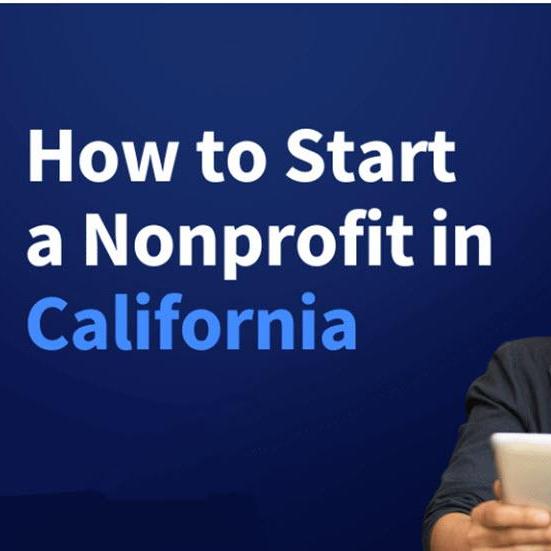Actualizaciones Recientes
- Please log in to like, share and comment!
-
-
-
- Establishing a 501(c)(3) nonprofit organization in California involves several key steps to ensure compliance with federal and state regulations. Here's a concise guide to assist you through the process:
1. Choose a Name for Your Nonprofit:
Ensure Uniqueness: Verify that your desired nonprofit name is not already in use by checking the California Secretary of State's business name database.
Reserve the Name: If available, you can reserve the name for 60 days by submitting a Name Reservation Request.
2. Appoint the Initial Board of Directors:
Minimum Requirement: California law requires at least one director; however, the IRS prefers a minimum of three unrelated directors for 501(c)(3) status.
Define Roles: Establish roles and responsibilities for each director to ensure effective governance.
3. Prepare and File Articles of Incorporation:
Draft the Document: Include essential details such as the nonprofit's name, purpose, agent for service of process, and required IRS clauses.
File with the State: Submit the Articles to the California Secretary of State with the appropriate filing fee.
4. Draft Bylaws and Conflict of Interest Policy
Bylaws: Outline the internal governance structure, including procedures for meetings, elections, and director responsibilities.
Conflict of Interest Policy: Establish guidelines to manage and disclose potential conflicts among directors and officers.
5. Hold the Initial Board Meeting
Adopt Governance Documents: Approve the bylaws and conflict of interest policy.
Other Actions: Elect officers, set the fiscal year, and authorize the opening of a bank account.
6. Obtain an Employer Identification Number (EIN)
Apply with the IRS: Secure an EIN online through the IRS website; this number is necessary for banking and tax purposes.
7. File Initial Registration with the California Attorney General
Form CT-1: Register with the Registry of Charitable Trusts within 30 days of receiving assets.
8. File the Statement of Information
Form SI-100: Submit this form to the California Secretary of State within 90 days of incorporation, providing details about the nonprofit's officers and address.
9. Apply for Federal Tax-Exempt Status
Form 1023 or 1023-EZ: Depending on your organization's size and complexity, file the appropriate form with the IRS to obtain 501(c)(3) status.
10. Apply for California State Tax Exemption
Form 3500 or 3500A: After receiving federal tax-exempt status, apply to the California Franchise Tax Board for state tax exemption.
11. Establish a Corporate Records Binder
Maintain Documentation: Keep organized records of all formation documents, meeting minutes, and filings for legal compliance and future reference.
12. Open a Bank Account
Financial Management: With your EIN and approved bylaws, set up a bank account to manage the nonprofit's finances effectively.
Completing these steps will lay a solid foundation for your 501(c)(3) nonprofit organization in California, ensuring compliance with legal requirements and positioning your organization for success.
Establishing a 501(c)(3) nonprofit organization in California involves several key steps to ensure compliance with federal and state regulations. Here's a concise guide to assist you through the process: 1. Choose a Name for Your Nonprofit: Ensure Uniqueness: Verify that your desired nonprofit name is not already in use by checking the California Secretary of State's business name database. Reserve the Name: If available, you can reserve the name for 60 days by submitting a Name Reservation Request. 2. Appoint the Initial Board of Directors: Minimum Requirement: California law requires at least one director; however, the IRS prefers a minimum of three unrelated directors for 501(c)(3) status. Define Roles: Establish roles and responsibilities for each director to ensure effective governance. 3. Prepare and File Articles of Incorporation: Draft the Document: Include essential details such as the nonprofit's name, purpose, agent for service of process, and required IRS clauses. File with the State: Submit the Articles to the California Secretary of State with the appropriate filing fee. 4. Draft Bylaws and Conflict of Interest Policy Bylaws: Outline the internal governance structure, including procedures for meetings, elections, and director responsibilities. Conflict of Interest Policy: Establish guidelines to manage and disclose potential conflicts among directors and officers. 5. Hold the Initial Board Meeting Adopt Governance Documents: Approve the bylaws and conflict of interest policy. Other Actions: Elect officers, set the fiscal year, and authorize the opening of a bank account. 6. Obtain an Employer Identification Number (EIN) Apply with the IRS: Secure an EIN online through the IRS website; this number is necessary for banking and tax purposes. 7. File Initial Registration with the California Attorney General Form CT-1: Register with the Registry of Charitable Trusts within 30 days of receiving assets. 8. File the Statement of Information Form SI-100: Submit this form to the California Secretary of State within 90 days of incorporation, providing details about the nonprofit's officers and address. 9. Apply for Federal Tax-Exempt Status Form 1023 or 1023-EZ: Depending on your organization's size and complexity, file the appropriate form with the IRS to obtain 501(c)(3) status. 10. Apply for California State Tax Exemption Form 3500 or 3500A: After receiving federal tax-exempt status, apply to the California Franchise Tax Board for state tax exemption. 11. Establish a Corporate Records Binder Maintain Documentation: Keep organized records of all formation documents, meeting minutes, and filings for legal compliance and future reference. 12. Open a Bank Account Financial Management: With your EIN and approved bylaws, set up a bank account to manage the nonprofit's finances effectively. Completing these steps will lay a solid foundation for your 501(c)(3) nonprofit organization in California, ensuring compliance with legal requirements and positioning your organization for success.0 Commentarios 0 Acciones 766 Views2
Quizás te interese…
Looking to make change in your community? Have a great idea for doing good and helping others? We applaud that activist spirit and want to help you consider your first steps toward realizing your vision.
- Public Group
- 5 Entradas
- 4 Fotos
- 0 Videos
- Religious








